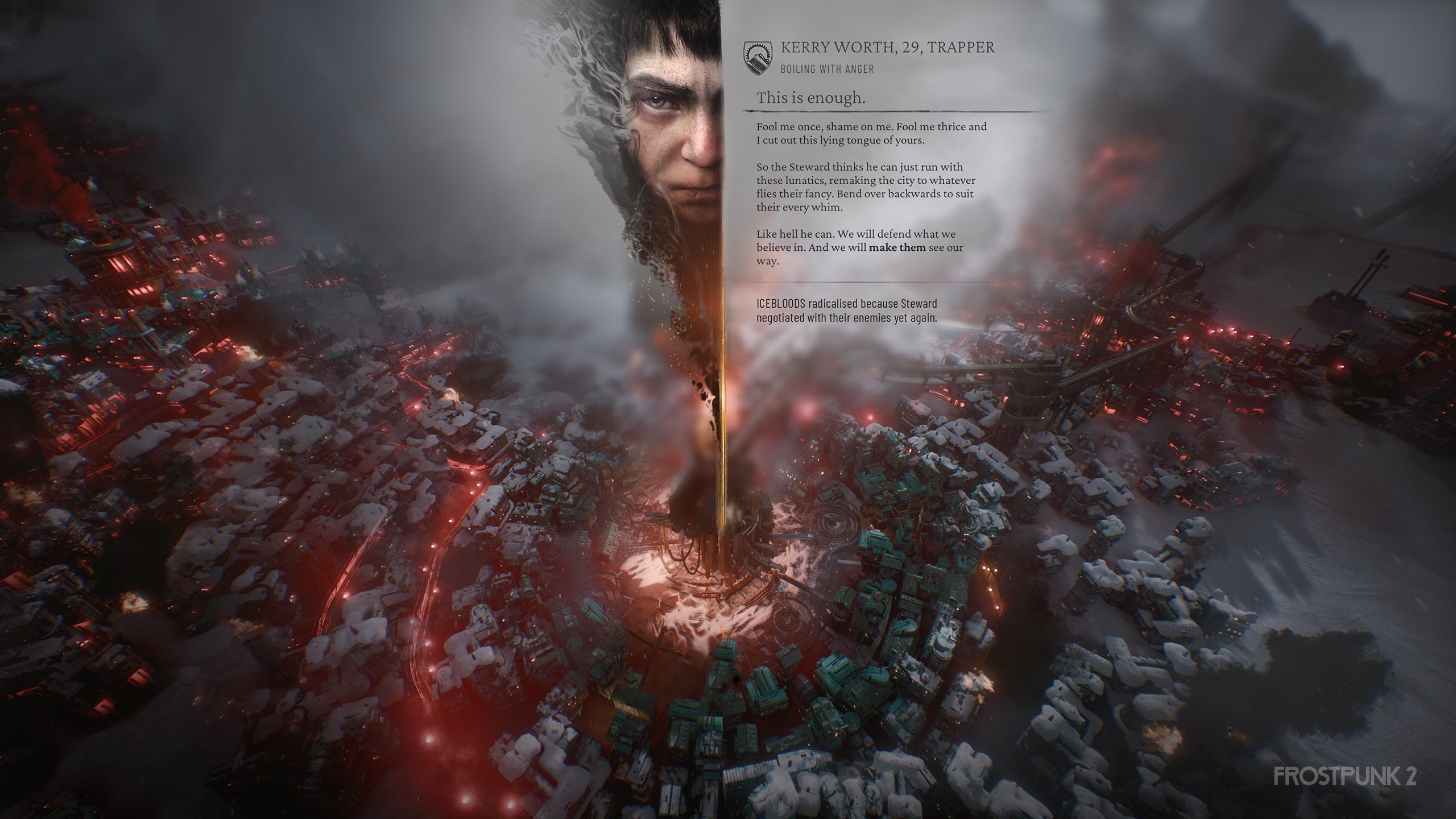At a glance, Frostpunk 2 looks quite a lot like Frostpunk 1, and I was actually relieved to see this because the silence has been such around the sequel I honestly wasn’t sure what to expect. It could have been anything. But it’s not; it’s familiar. We’re still building a Victorian-style city in the snow, and it still looks very cold out there. Look more closely, though, and there are some surprisingly profound differences underneath.
Frostpunk 2Developer/Publisher: 11 bit StudiosAvailability: Releases on PC in the first-half of 2024. Console versions aren’t announced but are actively being explored. You can safely consider them part of the plan
The biggest immediate change is that the weather – the extreme cold – is no longer your major concern in the game. It’s still there, you’re still in a frozen wilderness and it’s still a contributing factor to the pressurised situation you’re in – as is having enough food for your city and staving off disease – but you won’t spend the game as preoccupied by it, or by an apocalyptic storm that’s rolling in.
Instead, you’ll spend your time preoccupied by a storm of a different kind. A people-shaped storm, a societal storm. And if you fail to manage that properly, it will end you.
Frostpunk 2 is more political because of it, which I know sounds like a bold statement given that Frostpunk 1 was entirely about how far you’d go – politically speaking – to save a colony from extreme cold. Would you enact brutal dictatorial powers for what you perceived to be the greater good? That was the whole premise of the game. But this time, though, the politics are more detailed and life-like.
The big difference is in Frostpunk 2 you can no longer pass laws on your own. You can’t just suddenly decide to outlaw child labour, for example – or to enforce it. You still the leader of the settlement you’re building, the person in charge, but if you want to pass a law, you will now need people to vote on it – people who belong to factions or parties within your settlement whose views might not (probably will not) match your own.
